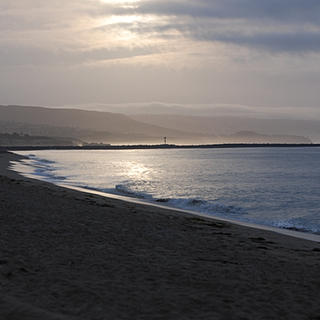Latino Conservation Week
- OC Habitats
- Oct 19, 2020
- 3 min read
Latino Conservation Week (LCW) is filled with environmental education events every July and its main focus is to help Latinos engage with their local environment, this can be by visiting their national parks or other public lands. The LCW was created by the Hispanic Access Foundation in 2014 with the sole purpose of encouraging Latinos to participate in outdoor activities and to help protect natural resources. Audubon California conducted a live discussion called “Raza in the Outdoors” filled with LatinX panelists of Environmental activists that consisted of educators, organizers and conservationists. As a Chicana and an environmentalist, I was surprised that I wasn’t aware of this week-long event for environmentalists. With this being said, when Latino Conservation Week first took off in 2014 it only had nine events country-wide. Now, in 2018 it was last reported that over 150 events are available nationwide and it is rapidly growing.

There are four main goals for Latino Conservation Week:
The first goal is for community leaders to provide families and youth opportunities for outdoor exploration near their homes. This is crucial for individuals that live in inner-cities and aren’t exposed or don’t have access to the national parks or other public lands and open spaces. This particularly affects latino communities because of the limited access of environmental awareness among the youth. Even exploring local parks can make a huge impact on youths’ lives, and they are encouraged to continue researching national parks to help them understand the importance of being environmentally conscious.
The second goal of LCW is for the Latino’s community to be committed to conservation. As a Latino/a child that grew up in the inner-city the only times I was educated to be environmentally conscious is when my family and I would visit my grandparents farm in Mexico. Through-out my childhood, my siblings and I were sent to Mexico in the summers to help our grandparents with agriculture. Furthermore, if we spread awareness to the Latino/a community on conservation then we can make changes that accumulate to have a huge environmental impact.
The third goal is for LCW to get together in communication with community and organization leaders to help spread awareness of local and national conversation issues. If multiple Latino/a communities gather to work together and help spread awareness on environmental issues, this can make a tremendous difference for the future of our environment. Working together with multiple communities to advocate and educate others can make a bigger difference in voicing our concerns to policy makers on the importance of implementing new propositions that will protect national parks and public parks.
The last goal is for LCW leaders to spread awareness to the public through media outlets on Latino communities for conservation issues. This last goal is very important because it’s our civic duty to have our voices be heard by media outlets to showcase the importance of living with an environmentally conscious mind.
It’s important that we educate ourselves and others on Latino Conservation Week because it encourages others to engage with their outdoors even if it’s in their local parks. This is a huge steppingstone for the Latino community as we gather other Latino/a communities to engage outdoors. Personally, being raised in the inner cities, we aren’t taught to engage with our local national parks. This is a concern that the panelists from the Audubon live discussion brought to light by pointing out the fact that growing up in a Latino/a household we aren’t taught or encouraged to be environmentalist. Therefore, it’s the civic duty for other Latino/a to encourage Latino/a communities to be more environmentally conscious. If you're interested in learning more, visit these links that state the purpose and events of LCW:
Learning more about what LCW is about can be a huge starting point in learning about conservation!







Comments